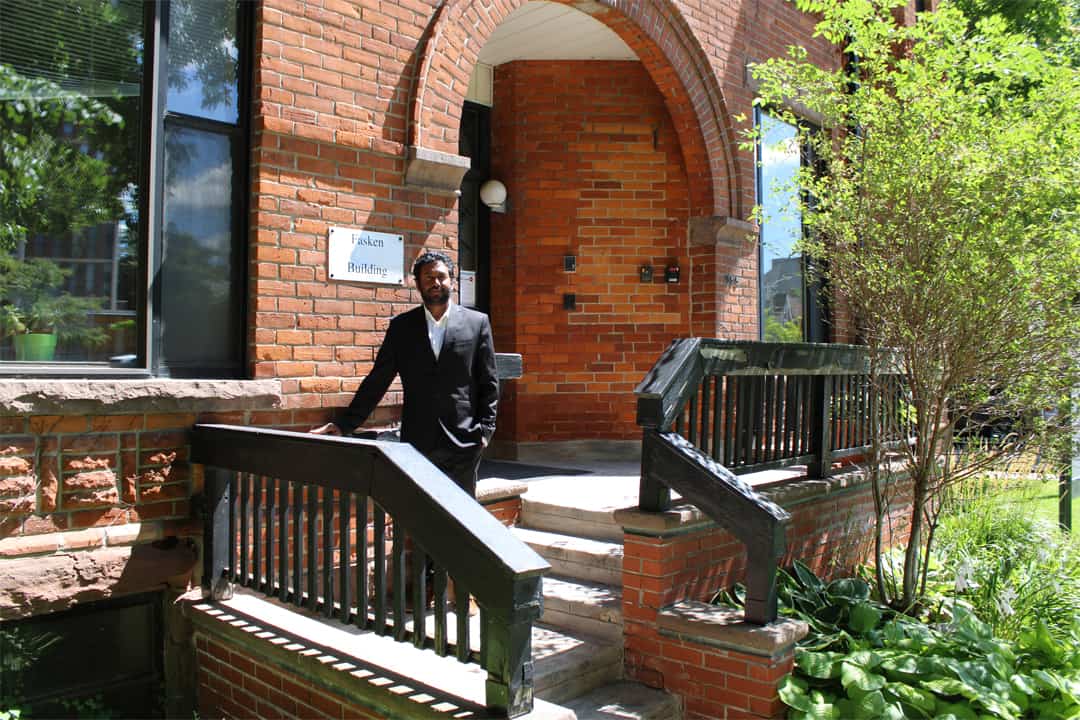This year, the Downtown Legal Services (DLS) clinic celebrated its 50th anniversary. The clinic serves thousands of low-income individuals and students in the GTA each year while offering students ways to develop their skills and advocacy.
DLS and its services
The clinic offers legal services to low-income communities and U of T students and focuses on six fields of law — namely criminal law, employment law, family law, refugee and immigration law, housing law, and university affairs. The DLS clinic is staffed by volunteers, U of T student caseworkers, and staff lawyers. DLS handled over 100 cases in the last year and serves almost 2,000 clients annually.
The clinic has three satellite clinics, which are located at Evangel Hall Mission, Fred Victor Women’s 24/7 Drop-In, and Church of the Redeemer. The clinic sends caseworkers to these locations to provide other support such as food, health care, and shelter in community locations.
DLS also provides student programs for those enrolled in the university’s Faculty of Law, where they can obtain credits, gain volunteer experience, and work for one term, a full academic year, or during the summer. As caseworkers, students deal with clients and cases while supervised by the clinic’s staff lawyers and director.
Impacts on the U of T community
In an interview with The Varsity, the director of the DLS clinic, Prasanna Balasundram, said that the clinic significantly impacts the U of T community. He explained that the clinic’s diverse services have aided students by providing legal services and offering them opportunities to advance their academic careers.
“There is the U of T community that gets served as clients… there’s also the U of T community of law students who come to the clinic and have this experience of learning while working on these cases. And we’ve had a significant impact there as well,” said Balasundram to The Varsity.
Justin Nathens, a second-year law student and a DLS caseworker, has represented community members and U of T students in the division of Criminal Law and University Offences. “In working with the clinic and the Criminal Law division, I have been able to gain experience in a practice of law that aligns with my politics and affirm my interest in criminal defence,” he wrote in an email to The Varsity.
Fatima Aamir, a caseworker in the Immigration/Refugee Law Division, worked full time during the summer term and is continuing her full-time work this fall semester. She wrote in an email to The Varsity that “her time at DLS has shown her how collaborative the legal field is.” She continued, “I never really felt that way studying at law school in my classes, but truly strong legal arguments are created in conversation with so many people and there’s so much room for creativity there, which has been really exciting to see.”
Grayson Alabiso-Cahill, who is in his final year at the Faculty of Law, told The Varsity in an email that his time at DLS has helped him “become a better person.” He explained that “Working in the clinic deepened my understanding of how power and privilege perpetuate oppression, including through the law. My time at DLS solidified my commitment to working alongside poor and working-class communities in the struggle for liberation.”
“My DLS experiences have been the highlight of my time in law school,” wrote Alabiso-Cahill.
Celebrations
The clinic celebrated its 50th university with two panel discussions about the clinic’s impacts over the years. The first panel was held virtually on March 31 and the second panel was a hybrid event on October 20 with approximately 100 in-person attendees, all alumni of the clinic. Notable alumni were Supreme Court Justice Sheila Martin and one of Canada’s foremost refugee and immigration practitioners, Barbara Jackman.
Upcoming plans
According to Balasundram, DLS has a variety of plans for the near future, as the clinic wishes to maintain and refine its provided services and become closer to the members it serves.
In addition, he looks forward to expanding its services. “Our hope is to be able to expand into some other areas of law, including doing maybe some income support work [and] maybe doing some prison outreach, so trying to serve populations that are currently detained at various facilities in the GTA,” Balasundram told The Varsity.
One of Balasundram’s goals for the clinic is to facilitate a premier educational experience for law students who are volunteers or caseworkers. “One of the things that we’re going to be looking to do is to make sure that our pedagogy — how we teach — is aligned with the best practices in clinical legal education.”


